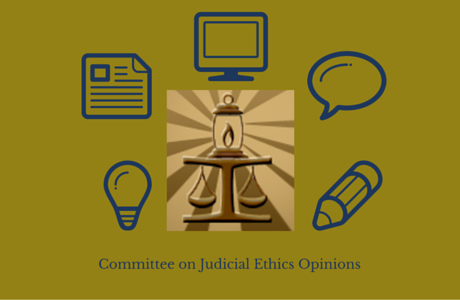Ethics Committee Advises Caution for Judges Attending Protests
A California Supreme Court committee today published guidance for judges who want to attend public demonstrations and rallies, citing a slate of ethical issues for judges to consider before participating.
The opinion, issued by the Supreme Court Committee on Judicial Ethics Opinions (CJEO), said judges may feel a moral obligation to support causes of racial justice and equality in their communities by participating in public demonstrations and rallies.
At the same time, judges have a duty to promote the public’s confidence in judicial impartiality.
CJEO Formal Opinion 2020-014 concludes a judge’s participation in a public demonstration or rally is not prohibited in all circumstances and lists the following restrictions:
- Judges cannot attend demonstrations or rallies if their presence might undermine the public’s confidence in the judiciary;
- Judges cannot attend such events that relate to a pending case, or to an issue likely to come before the courts;
- Judges cannot participate if likely to violate a law, for example violating a curfew.
- Judges cannot create the appearance of speaking on behalf of, or lending the prestige of office to, a political candidate or organization, or allow their participation to interfere with the proper performance of their judicial duties.
- Judges must remain vigilant and should be prepared to leave if staying at the demonstration or rally might result in a violation of their ethical duties or interfere with judicial obligations.

“Judges who have devoted themselves to the cause of justice from the bench may feel compelled to show their support for racial justice and equality by attending or speaking at demonstrations or rallies, often just outside of the courtroom doors. The committee wants to provide bench officers with a practical framework, firmly grounded in the canons, for what they can and cannot do ethically either by going to a demonstration or rally or by making a public statement about these important matters,” said Judge Erica Yew, a member of the committee who currently serves on the Santa Clara County Superior Court.
Because of the ethical issues that might arise by attending and participating in a public demonstration or rally, the opinion suggests judicial officers instead consider writing a public statement about matters relating to racial justice and equality, as California Chief Justice Tani G. Cantil-Sakauye (link) and the Supreme Court of California (link) have done. Since judges can maintain control of the substance and tone, a statement that addresses issues of racial justice and equality may present fewer ethical risks than participating in a public demonstration or rally on those same issues.
About the Committee on Judicial Ethics Opinions (CJEO)
The Committee on Judicial Ethics Opinions is a 12-member advisory committee that includes appellate justices, trial court judges and commissioners. The committee is appointed and authorized by the California Supreme Court, but its work is independent of the court, the Judicial Council, and all other entities. Its opinions are advisory and do not necessarily reflect the views of the California Supreme Court or any other entity.
The committee issues formal opinions, informal opinions, and oral advice on proper judicial conduct pursuant to the California Code of Judicial Ethics and other authorities. CJEO summarizes its oral advice and posts the summaries on the CJEO website for the benefit of the bench and the public.


